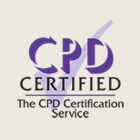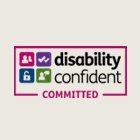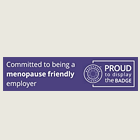Course Overview
Healthcare professionals are frequently asked to write witness statements for a Coroner or called to attend an Inquest hearing to give evidence. This often provokes worry or anxiety, and witnesses can feel intimidated by the Inquest process.
This practical course is designed to help overcome those fears. Starting with statement writing, it explains why a witness statement is required, what it should cover and how it should be structured. The course then moves on to a clear and full explanation of the Inquest process from start to finish. All practical aspects are covered, including who will be in attendance at Court, what to wear, what to call the Coroner and how best to answer questions. It also covers some more of the more difficult issues, such as what to do if lawyers are present, how to deal with their techniques, juries and expert witnesses.
The course will focus on Inquests with a mental health element to them, and is aimed primarily at mental health professionals, but it is open to all.
Course Objectives
- Learn how to write a clear and complete witness statement, and why this is so important.
- Learn what an Inquest is and why it is required. In particular, understand what role the Coroner plays and what he/she can and can’t do.
- Learn when a jury will be called, and what this means in practical terms.
- Be given practical tips on what to wear, what to expect on the day and what support you will have.
- Learn how to be a good witness and how to give clear and honest evidence.
- Gain an understanding of what makes a “bad” witness, and how to avoid this.
- Be given tips on how to deal with lawyers’ techniques when questioning witnesses.
- Learn when an expert witness is required, what their role is and how this might affect you.
- Understand how a Serious Untoward Investigation will be used by the Coroner.
- Understand the possible conclusions a Coroner (or jury) can return, and whether there will be any further ramifications.
- Gain an understanding of what a Prevention of Future Deaths report is.
Course Timetable
| 9.30am to 10.00am | Coffee and Registration |
| 10.00am to 10.30am | Introduction and overview |
| 10.30am to 11.15am | Witness statements |
| 11.15am to 11.30am | Coffee Break |
| 11.30am to 12.00pm | Coronial process explained. Practical issues, court visits, what to wear and possible conclusions. |
| 12.00pm to 12.45pm | What makes a good witness. What makes a bad witness. |
| 12.45pm to 1.30pm | Lunch |
| 1.30pm to 2.45pm | Cross-examination exercise. Dealing with lawyers and juries. |
| 2.45pm to 3.00pm | Tea Break |
| 3.00pm to 3.30pm | How Coroners use internal investigation reports. Understanding Reports to Prevent Future Patient Deaths. |
| 3.30pm to 4.00pm | Summary |
| 4.00pm | Conclusion |







